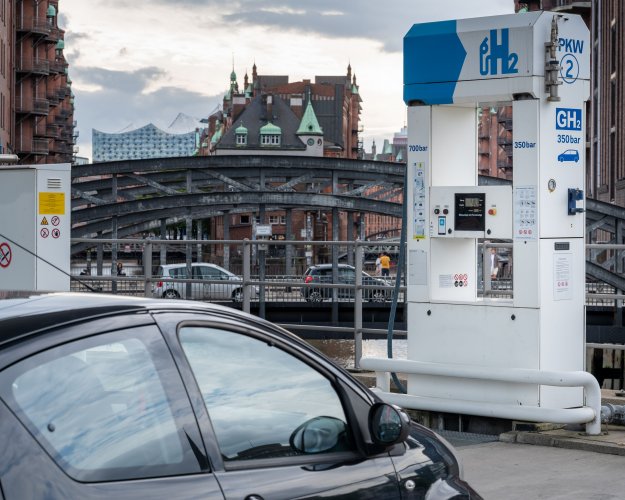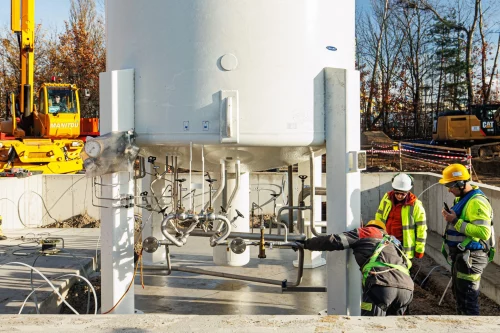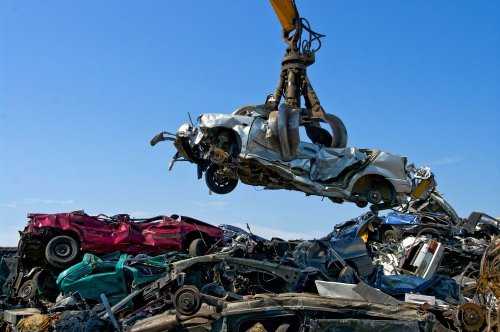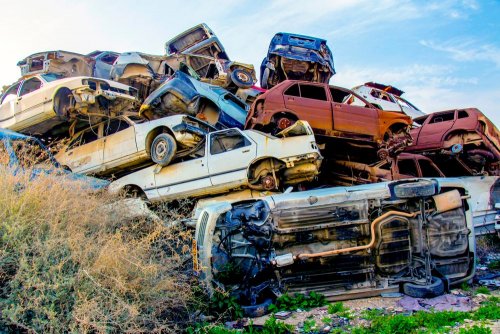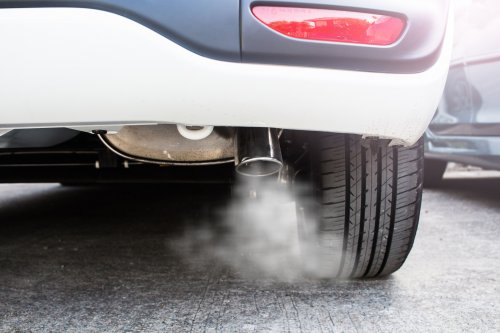An industry coalition coordinated by the hydrogen fund Hy24 has issued a report calling on the European Commission and member states to create a network of large-scale hydrogen refueling stations (HRS) by 2027.
This is necessary to achieve intermediate emission reduction targets in the transport sector for the implementation of the European Alternative Fuel Infrastructure Regulation (AFIR), reports Hy24.
It is noted that the presence of a network of filling stations that provide hydrogen at an acceptable price will create the basis for the mass deployment of hydrogen vehicles. It should start no later than 2026 to give the sector enough time to expand and develop, including supply chains.
The report emphasized that the EU regulation on CO2 standards envisages a reduction of emissions from heavy vehicles by 45% by 2030. It is zero-emission vehicles (ZEVs) that will play a central role in achieving these goals.
The coalition calls for the creation of HRS at all city nodes and every 200 km of main highways.
"The deployment of the 650 stations required by the AFIR must begin by 2025, and the support mechanisms must be in place by 2024 to meet the HRS deployment targets and the intermediate targets set by the member states," the message stressed.
It is noted that the HRS precedes the scale-up of commercial hydrogen vehicles, which requires special support schemes to mitigate short-term financial losses.
A combination of system territorial coverage and the "pay for power" mechanism is proposed. That is, a fixed rent for 8-10 years based on HRS capacity for their rapid deployment.
The announcement added that such companies as Daimler Truck AG, Stellantis, Renault Group, HYVIA, BMW Group, Toyota Motor Corporation, Hyundai Motor Company, Honda, Air Liquide, TotalEnergies, VINCI Concessions, Air Products, Everfuel, Messer have joined the coalition. SE & Co. KGaA, H2Accelerate, Snam S.p.A., ENGIE and H2 MOBILITY.
Earlier, EcoPolitic wrote, that a network of more than 100 hydrogen stations for heavy vehicles will be built on main roads in Belgium, the Netherlands and Luxembourg (the Benelux political and economic union), as well as in Germany.
As EcoPolitic previously reported, a sharp increase in demand for green hydrogen by about 4 million tons is expected in Europe thanks to the Directive on renewable energy sources.

